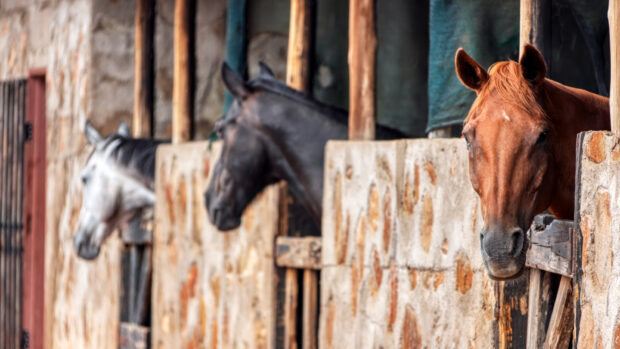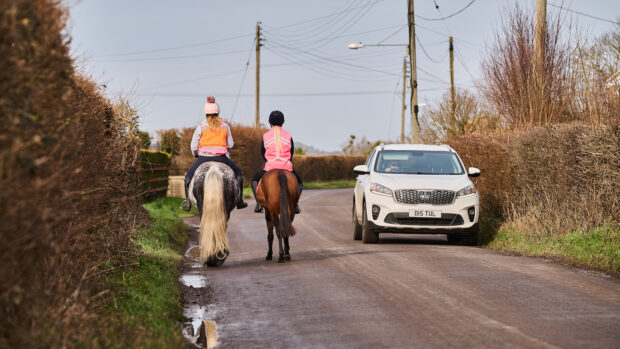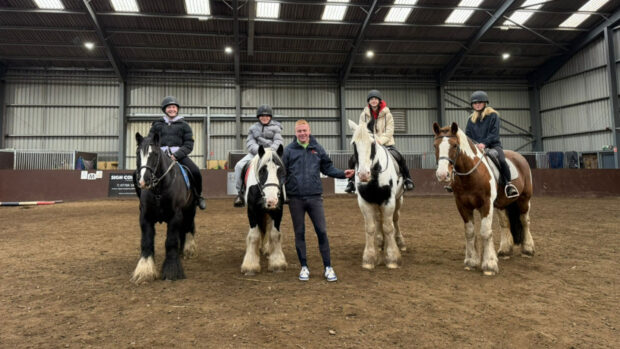Everyone has the right to shine – and as an industry it is our duty to provide the opportunity to do so, which could benefit all of us.
This was the message at a session on accessibility, at the National Equine Forum on 7 March. Speakers considered different pathways to ensure everyone is welcome in equestrianism.
First to present was Jane Cooper, managing director of Access & Inclusion UK, whose daughter Megan was born with a rare chromosomal condition.
“That was a real life-changing moment,” she said. “I realised then the extra challenges people face, which I wasn’t aware of. That’s why I do what I do.
“Disabled people want the same things others do from spending time with horses; the emotional and therapeutic benefits, the bond and the physical benefits. There has been a shift in thinking; it used to be that the issue was the individual, now the issue is actually the inaccessible world. If you make changes, you can improve accessibility, so every organisation can make a difference.”
Ms Cooper advised looking at barriers to accessibility and then considering how to take them down, for example having written information for people with hearing impairment and audio equivalents for those with visual impairment.
“You can do things that mean everyone who wants to can have this experience,” she said.
British Equestrian (BEF) head of participation and development Mandana Mehran Pour spoke about the BEF’s #HorsesForAll project, which has included research on barriers to participation and the development of an equality, diversity and inclusion action plan.
“The biggest barrier could be your biggest opportunity, and I think that’s important,” she said. “Everyone has the right to shine, and as an industry we have a duty to provide that opportunity. If you believe everyone should have that chance, we all have a role to play in creating a more welcoming environment.”
Ms Mehran Pour said one key point from the BEF’s work is that representation and visual diversity matter to the research participants: “They wanted to see people who looked like them, so we really need role models”.
“Diversity isn’t just the colour of your skin,” she said. “We need to ask questions and better understand the people we communicate with, putting inclusion at the heart of all we do.”
Rebecca Cogswell, director of marketing, communications and fundraising at the British Horse Society (BHS), asked guests why it matters that everyone is welcome.
“Because many times, that unique bond has made a massive difference to people’s lives,” she said. “The bond between people and horses is like no other.”
Ms Cogswell said understanding current and potential audiences is key. She cited BHS research that found that equestrianism is perceived as elitist, and that many saw it as a community to which they could not belong.
“But love for horses unites us all,” she said. “There are strong positives on which we can focus. So how to make the benefits more available to all? We need clear strategies for inclusion. It matters because of the power of the horse-human bond. That’s why it’s so important horses in society continues, we must keep Britain riding and listen to our audience to ensure everyone is welcome to experience it.”
You might also be interested in:

‘Horses for all’: new strategy aims to encourage more people to engage with equines

Real progress being made towards increasing equestrianism’s diversity

Subscribe to Horse & Hound magazine today – and enjoy unlimited website access all year round
Horse & Hound magazine, out every Thursday, is packed with all the latest news and reports, as well as interviews, specials, nostalgia, vet and training advice. Find how you can enjoy the magazine delivered to your door every week, plus options to upgrade your subscription to access our online service that brings you breaking news and reports as well as other benefits.




